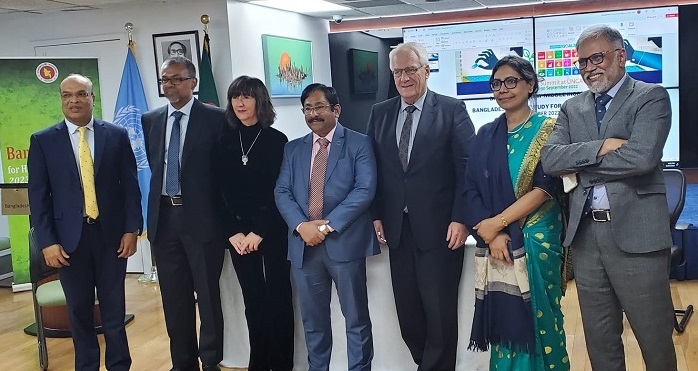Biobanking is key to strengthening scientific research in developing countries
Asian countries are underrepresented in biomarker studies due mainly to the lack of reliable and trustworthy biomaterial with clinical data locally.
The result is that racial disparities exist in drug and biomarker testing as well as clinical trial enrolment. The majority of approved cancer drugs and biomarkers have been tested on Caucasian populations.
Various factors, including cellular and molecular heterogeneity within tumours, varying host immune responses, diet, environmental exposure, lifestyle, and patient demographics, influence the effectiveness of cancer drugs and biomarkers.
This 'one-size-fits-all' approach is obsolete. There is a need to design strategies to develop effective drugs and biomarkers by applying principles of individualised cancer care.
The critical importance of developing biobanks in low-middle income countries was discussed at the Science Summit at the 77 United Nation General Assembly in a session organised by Dr Arman Rahman, UCD Conway Institute and colleagues at the largest teaching hospital in Bangladesh, Bangabandhu Sheikh Mujib Medical University (BSMMU).
 Pictured l-r: Dr. Md. Monwar Hossain, Deputy Permanent Representative of Bangladesh to the United Nations, Dr Arman Rahman, Dr Rita Lawlor, Prof. Dr. Md. Sharfuddin Ahmed, Prof. Kurt Zatloukal, Prof. Laila Anjuman Banu, Prof. Md. Sayedur Rahman.
Pictured l-r: Dr. Md. Monwar Hossain, Deputy Permanent Representative of Bangladesh to the United Nations, Dr Arman Rahman, Dr Rita Lawlor, Prof. Dr. Md. Sharfuddin Ahmed, Prof. Kurt Zatloukal, Prof. Laila Anjuman Banu, Prof. Md. Sayedur Rahman.
Several world biobanking leaders spoke on the importance of developing a world-class biobank in low-middle countries such as Bangladesh for the development of translational research capacities in their country. They included:
- Prof. Kurt Zatloukal, Head of the Diagnostic and Research Center for Molecular BioMedicine at the Medical University of Graz who coordinated the preparatory phase of the European biobanking and biomolecular research infrastructure (BBMRI-ERIC) and is director of the Austrian national node;
- Dr Rita Lawlor, graduate of Trinity College Dublin with a doctorate in Oncological Pathology from the University of Verona who co-founded the ARC-Net (www.arc-net.it), and applied cancer research centre where she is director of the ARC-Net biobank and coordinates research activities;
- Dr Zisis Kozlakidis is the Head of Laboratory Services and Biobanking at the International Agency for Research on Cancer, World Health Organization (IARC/WHO);
- Professor Dr Md. Sharfuddin Ahmed, Vice Chancellor, BSMMU
The session took place at the Permanent Mission of the People's Republic of Bangladesh to the United Nations in New York on Tuesday, 27 September 2022.
Social Media Links